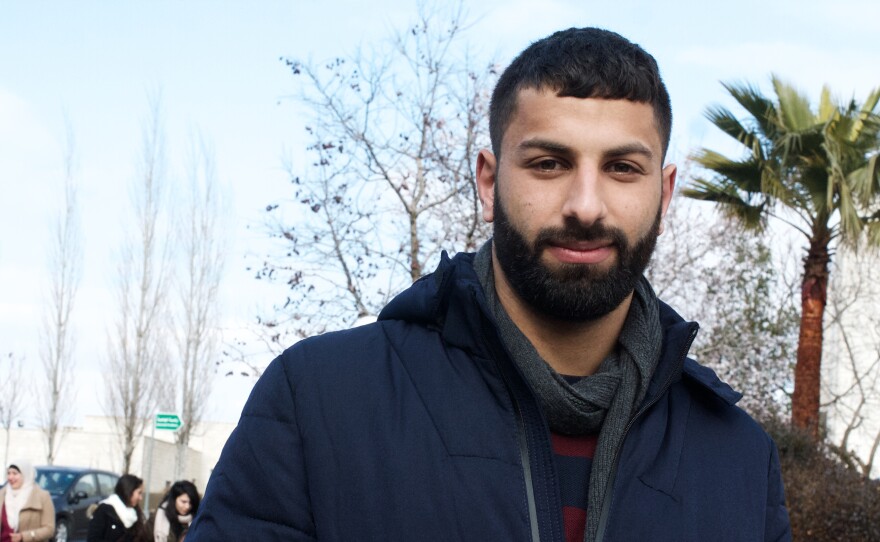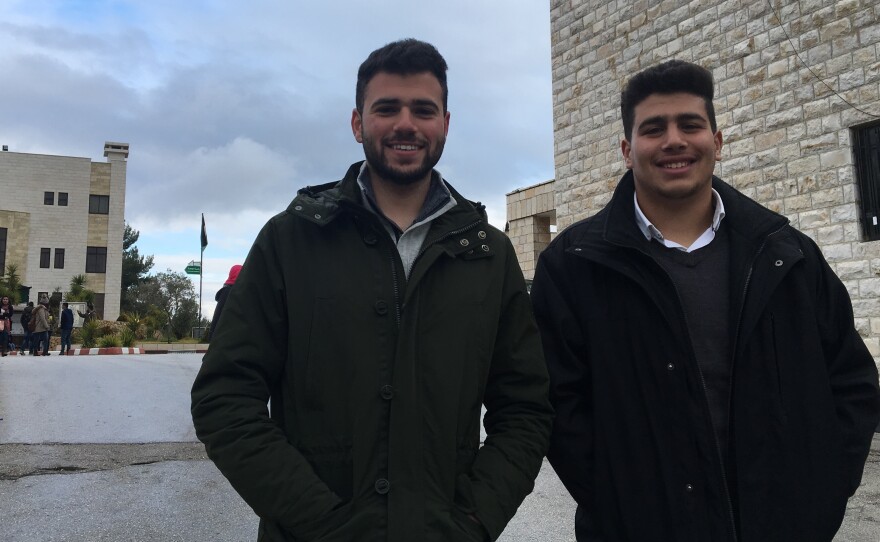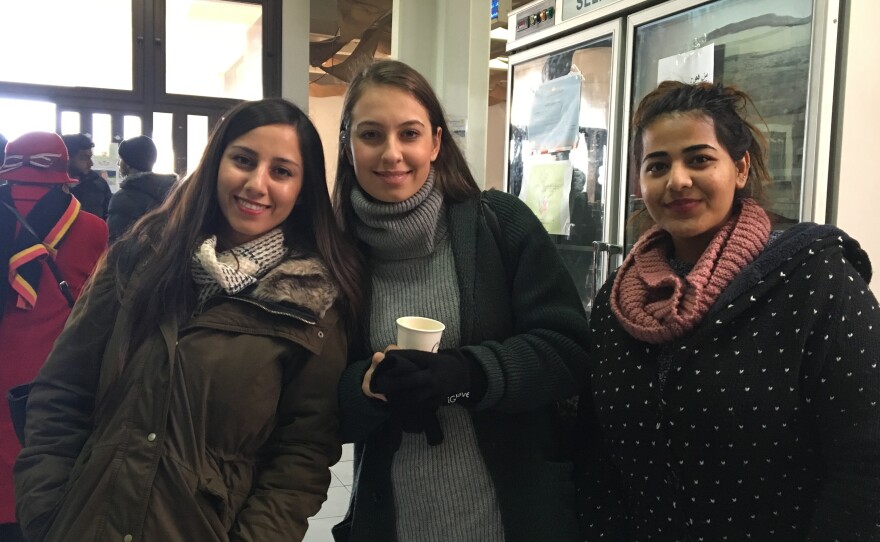

Growing up in the West Bank, Amjad Hasan has watched his leaders trying to negotiate a so-called two-state solution, or a Palestinian state alongside Israel.
"The talks seemed to go on and on," says the 22-year-old electrical engineering student, who studies at Birzeit University outside the Palestinian city of Ramallah. "And nothing happened."
The death knell, Hasan says, came after President Donald Trump hosted Israeli Prime Minister Benjamin Netanyahu in Washington this week.
Hasan watched their news conference online. He heard Trump talk about the violence Israel faces and say, "so I'm looking at two-state and one-state, and I like the one that both parties like."
Which, to Hasan, means the one that Israel likes.
"He talked about Israel like it's a victim," he says. "He didn't seem to care about Palestinians. He doesn't seem to know anything about the reality of the conflict here. He only sees what Israel wants him to see."
I meet Hasan on a rainy afternoon at Birzeit's campus. There are women in jeans and headscarves hugging armfuls of books, and men in windbreakers showing each other videos on their smartphones.
Two 19-year-old finance students, Mohamed Abed and Basel Nader, have just finished a class.
Abed says Trump doesn't see that Jewish settlements in the West Bank are hurting Palestinians.
"The settlements are getting closer to our houses," he says. "And they have to search for a solution for that."
I ask the young men if they recognize Israel as a country.
No, they both say, shaking their heads.
"It's not even their home," Nader says, frowning.
This is exactly what many Israelis fear. They don't want to grant statehood to a people who don't recognize Israel's right to exist.
Abed and Nader say they would would accept Israel if it would give Palestinians rights in a two-state deal.
Now they think they might have to fight for that.
"We tried everything, we tried negotiating," Abed says. "I think we can get our rights in that way."
"The hard way," Nader says.
Violence will lead nowhere, says Ghassan Khatib, a political science professor at Birzeit and a former spokesman for the Palestinian Authority. He supports a two-state deal.
"I think it's the only way for settling this conflict," he says. "Because all other options are continuity of the conflict ... continuity of the potential for future wars."
He says he worries about another war breaking out in Gaza, where the Islamist party Hamas governs.
"The happiest [people] in the world to hear what we heard at the [Trump-Netanyahu] press conference were Hamas," he says. "Because they have always been saying that this peaceful two-state solution is not going to work."
In Gaza, 16-year-old Tamer Shoblaq says it's clear negotiations have failed. "One state, not two states," he says. "One Palestinian state."
Israeli Education Minister Naftali Bennett, of the right-wing pro-settler Jewish Home party, said the meeting brought Israel closer to annexing the West Bank, where the Palestinians want to establish a future state.
Israel captured the West Bank in 1967. The U.N. considers settlements there illegal.
"The Palestinian flag has been replaced today with an Israeli flag," he told Army Radio. "After four years of heading toward a Palestinian state, which has brought so much misery and deaths in the intifada [Palestinian uprising], and severe damage to our international position, I think this is definitely a new era."
Settlers, however, are only a fraction of Israelis.
About 55 percent of Israelis support two states, according to a poll by the Tami Steinmetz Center for Peace Research, Tel Aviv University and the Palestinian Center for Policy and Funding Research in Ramallah.
But there is a "slow and incremental overall decline in support for the two-state solution in the past few years," says Dahlia Scheindlin, a Tel Aviv-based pollster. "You do see how over time the lack of any sort of prospect is really eroding that sense of viability."
The poll also surveyed Palestinians. About 44 percent of Palestinians still support a two-state deal.
One is 20-year-old Khadeja Ghawamneh. She wants Israel and a future Palestine to exist side by side.
I meet her in Birzeit University's busy cafeteria. She stands near a poster of Palestinian leader Yasser Arafat.
"I don't see any option but to have confidence in our leaders," she says. "We've started this journey to our own state. Let's finish it."
Copyright 2017 NPR. To see more, visit http://www.npr.org/.






